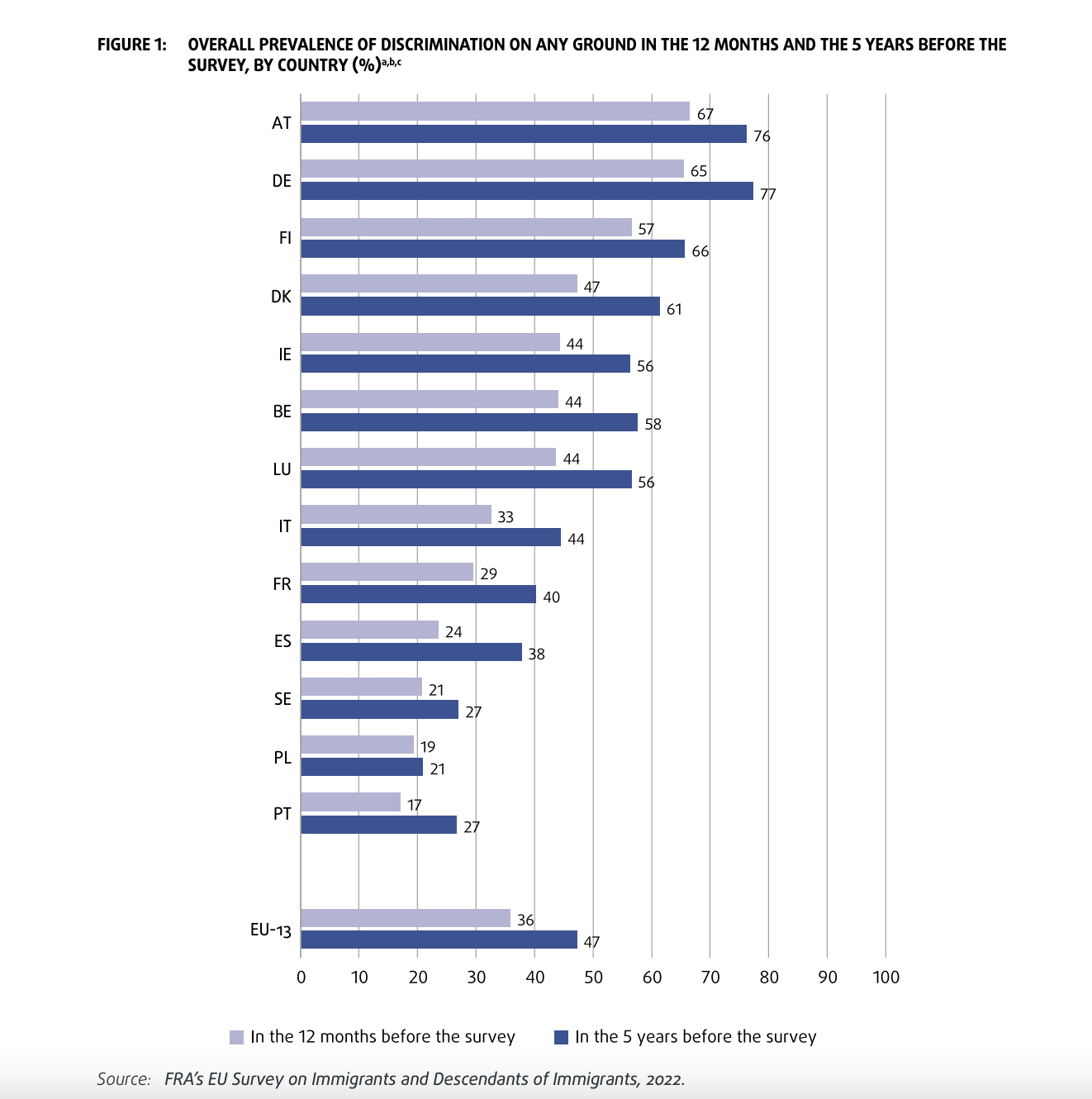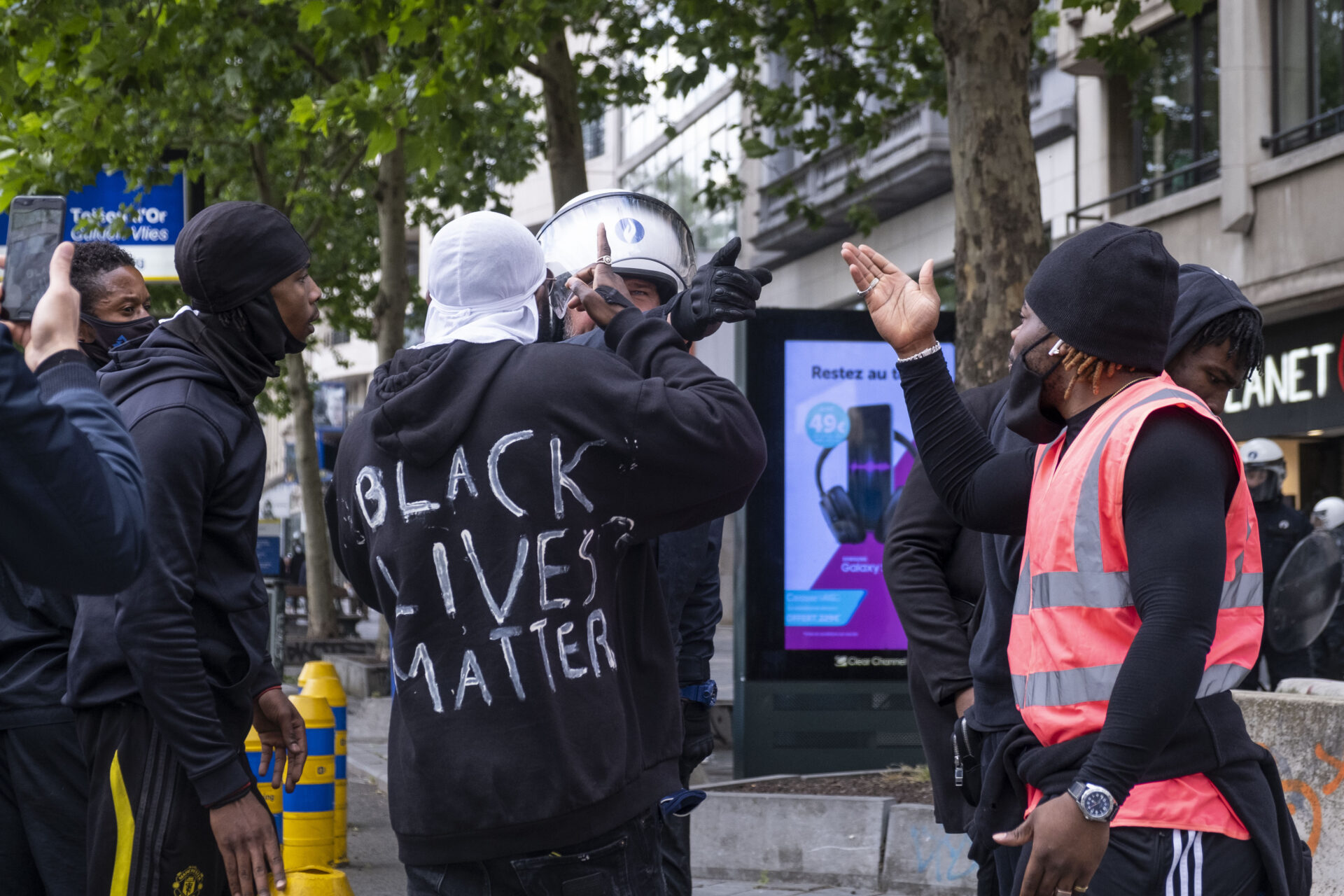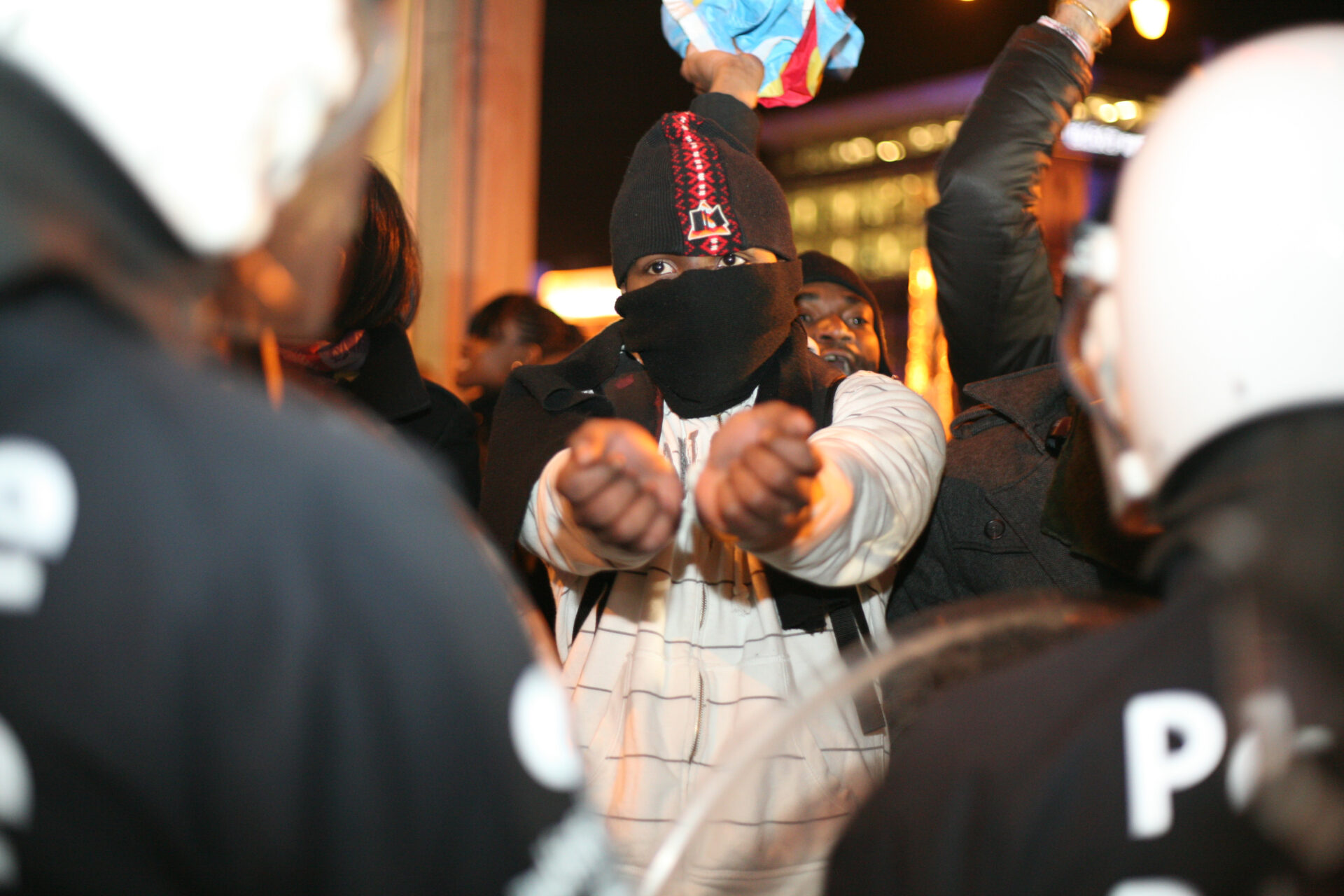A new report has shone a light on a rise in racism in Belgium for people of African descent, with over half saying they have experienced some form of discrimination in the last five years.
Nearly four years on from the global mobilisation for Black Lives Matter in 2020, a new EU Fundamental Rights Agency (FRA) report reveals the challenges black people in the European Union still face on a daily basis.
Released on Wednesday, Being Black in the EU contains experiences from 6,752 migrants and nationals of African descent living in 13 EU Member States: Austria, Belgium, Denmark, Finland, France, Germany, Ireland, Italy, Luxembourg, Poland, Portugal, Spain and Sweden.
The findings show a pronounced rise in racism in the EU: 47% of respondents say they experienced racial discrimination in the 5 years before the survey, an increase compared to 39% in FRA’s last survey in 2018.
In Belgium, 58% have experienced discrimination in the last five years – above the EU average (47%); 42% have experienced racism in Belgium in the last 12 months.

Credit: EU Fundamental Rights Agency
"In the 21st century, there is no excuse for racial discrimination. Yet black people in the EU today are still victims of widespread and unacceptable levels of discrimination and harassment simply because of their skin colour," said FRA Director Michael O’Flaherty in a statement.
Housing and search for jobs
Most often, black people in the EU are discriminated against when searching for employment or accommodation. Racism was found to be widespread among landlords preventing black people from renting an apartment. Belgium was revealed as the third-worst for housing discrimination (44%), behind Finland (62%) and Austria (49%).
But when it comes to looking for employment, the percentage of those that faced discrimination was even higher with 45% in Belgium saying they have felt discriminated – higher than Italy (40%), France (36%) and Spain (25%). Among the highest in the EU, are Austria (59%), Germany (56%) and Finland (53%).

Credit: EU Fundamental Rights Agency
One third (32%) of the respondents work in "elementary" occupations, compared with 8% across the general population of the 27 EU Member States. The study also found that respondents are often overqualified for their jobs.
Overall, most respondents of African descent are in paid work (71%) – close to the average of the EU general population (73%). However, Belgium is among the lowest when it comes to the average of in-paid-work rates (66%), level with Spain, and ahead of Sweden (65 %). The low country also scored low differences in paid work between citizens and non-nationals.

Mural in Matonge. Credit: Belga / Herwig Vergult
On job security, the highest proportion of employed respondents with temporary contracts is in Spain (45%), which also displays the biggest differences between the general population (27 percentage points), with the second largest difference was observed in Belgium (26 percentage points).
Tensions with police
The study also showed that experiences of racial discrimination fuels mistrust in public institutions, particularly the police, the legal system and municipal authorities.
In Belgium, respondents who had experienced racism by law enforcement rated their police trust at just over half (5.4) out of ten, while those who said they had not experienced racism with the police, scored a higher trust level (7.4).
Out of these, Belgium is second to last after France (4.9) and ahead of Ireland and Sweden (5.9). Across the EU, 6.7 said they had trust in the police, while 5.5 said they did not, according to their experiences with racism.

People arguing with the police during the Black Lives Matter anti-racism protest in June 2020. Credit: Belga / Paul-Henri Verlooy
When it came to being stopped by the police, one in four (26%) black people were stopped in the 5 years before the survey.
Ethnic profiling remains a problem in the EU: more than half (58%) perceived the most recent stop as racially motivated in the 12 months before the survey was taken. 48% of people in Belgium say the most recent stop was due to ethnic profiling.
Spain (58%) and Belgium (41%) have the highest rates of respondents who were stopped on the street, while for those stopped in their cars are Finland (66%) and Portugal (61%). Germany (17%) and Austria (11%) are the highest for those stopped on public transport. Once stopped, most respondents were asked for their identity papers (72%).

Credit: EU Fundamental Rights Agency
In Belgium, the conduct of the police is seen as the least favourable, with almost a third (31%) saying that the police treated them very or fairly disrespectfully during the most recent stop. By contrast, over three-quarters of respondents from Poland (81%) and Portugal (76%) say that the police treated them very or fairly respectfully.
Social inequalities
The Covid-19 pandemic exacerbated existing social vulnerabilities and inequalities. In both Belgium and France, 33% of respondents of African descent faced a loss of income during the pandemic and struggled financially as a result. Households of African descent are three times more likely to be in arrears with household bills (18%).

Children wear masks in their classroom at a primary school in Helecine, Monday 06 December 2021. Credit: Belga / Eric Lalmand
The rates are particularly high in Italy (33%), Belgium (30%) and Ireland (29%), where almost one in three respondants stated that their household had been in arrears with their utility bills.
In conclusion, the EU human rights agency called the lack of progress on discrimination "alarming" – particularly with the binding EU anti-discrimination law in place since 2000 and the "significant EU policy developments since then."

